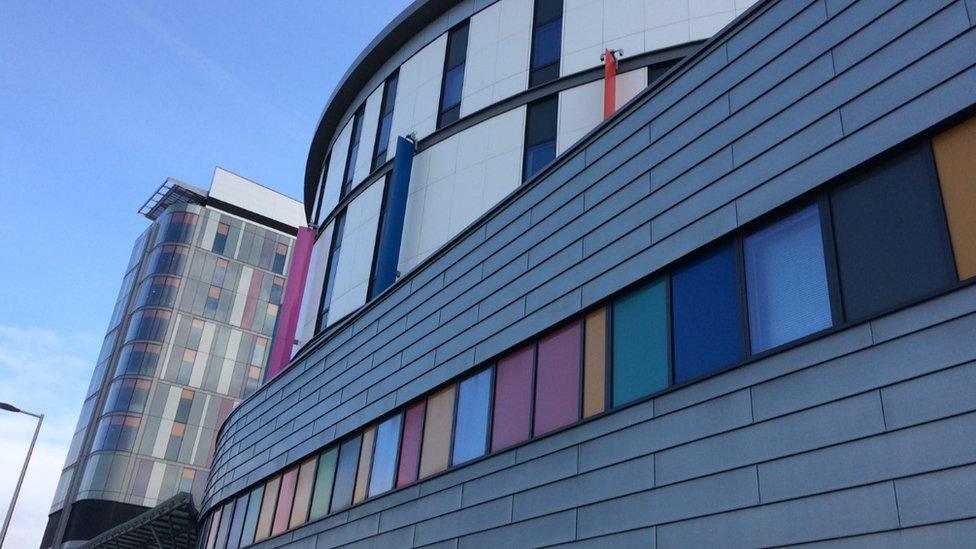Bacteria found in water at Glasgow Royal Hospital for Children
- Published

NHSGGC said patients in four wards had been given antibiotics
Three children are being treated for infections that may be linked to bacteria in the water supply at a Glasgow hospital.
NHS Greater Glasgow and Clyde is investigating after the microorganisms were discovered at the Royal Hospital for Children.
Health officials said the bacteria could pose harm to patients with "compromised" immunity.
The source of the bacteria is not yet known.
The health board said the bacteria posed "very low risk" to anyone with a healthy immune system.
It said tests were ongoing to confirm if the infections the three children have are linked to the water contamination issue.
Sterilised water
Dr Teresa Inkster, infection control doctor, said: "It's not unusual for children in this type of ward to suffer infections but we are carrying out tests to determine whether these bacteria are linked to any of the three patients.
"However, we can confirm none of the three patients are giving any cause for concern as a consequence of their infection."
The hospital has sought advice from Health Protection Scotland, Health Facilities Scotland and Scottish Water.
Alternatives to tap water supplies have been brought in for paediatric patients in wards 2A, 2B, 3C and the hospital's intensive care unit.
The health board has also given out oral antibiotics due to the low immune system of patients on these wards.
Sterilised water is being supplied for drinking and bottled water for brushing teeth.
Portable sinks stocked with bottled water have been supplied to all patient rooms in the affected wards.
The health board said: "Staff and others in these wards are able to use the tap water safely although we have taken an extra precaution of fitting taps and showers with filters to ensure no cross transmission from staff and visitors to patients."